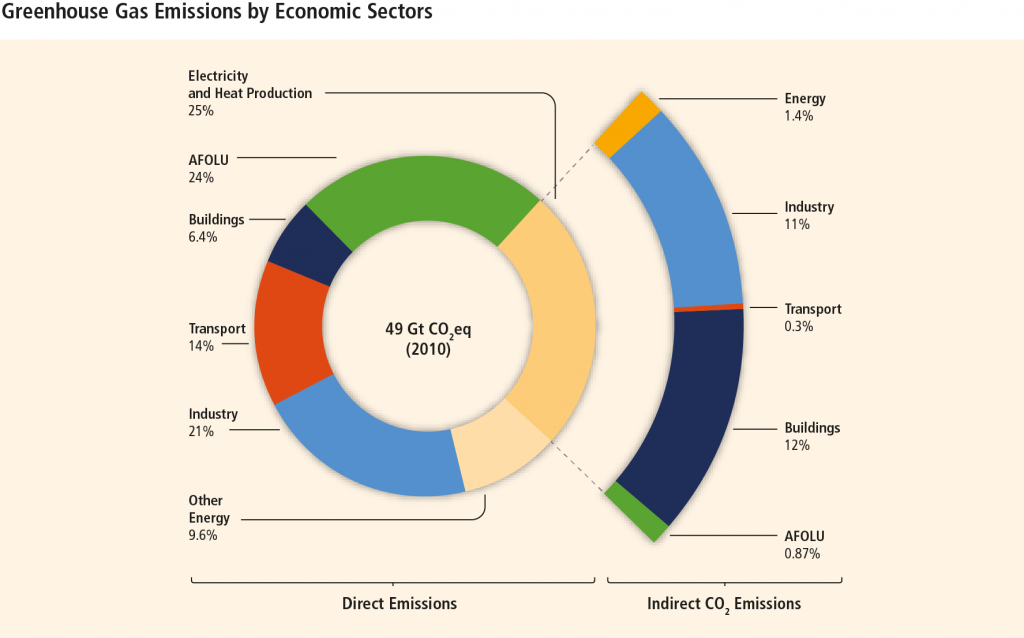Editors’ Note: This article is part of the Public Square 2014 Summer Series: Conversations on Religious Trends. Read other perspectives from the Pagan community here.
I am the searing sun, the hurricane’s howl,
the quaking earth and the ocean’s flood,
the arid desert and the melting ice cap,
the rising waters, the forest fire,
the dried up river, the cliff’s erosion.
When we think of the Divine in Nature, we think of nature’s beauty – the green earth and the white moon among the stars – but nature can be frightening as well as beautiful. Our ancestors venerated nature because they feared as well as loved it, because they knew they were totally dependent on something more powerful than themselves. In contemporary Pagan rituals, we domesticate the elements. The sun becomes a candle; the earth a bowl of soil; wind become incense; seas and rivers a bowl of water. Insulated from the elements in our city homes, it is easy to forget that natural forces can crush and destroy us. We delude ourselves that we can control nature, but we cannot command the rains to rain, the sun to shine, the wind not to blow.
Fear can be good
Over the past year, all around the world we have seen the power of nature in flood, forest fire, earthquake, avalanche, and hurricane. As a child I always loved storms. This winter, as wind tore out the roots of the trees on our land and sent them crashing down towards our neighbor’s house, for the first time I was afraid of the element of air. But fear can be good if it makes us realize that something is happening. All is not as before. Greenhouse gases created by human activity are causing our planet’s atmosphere to heat up. Existing weather patterns are disrupted and are becoming more extreme.
Global emissions of greenhouse gases have risen to unprecedented levels
Parts of the planet are losing the rainfall needed to support agriculture; elsewhere, rising sea levels make the land no longer habitable. Ecological problems are not new. Ever since our species learned to make fire, we have affected our environment for the worse. But now the problem has accelerated exponentially. The World Meteorological Association and United Nations’ Intergovernmental Panel on Climate Change reported this spring (IPCC 2014)[1] that emissions grew more quickly between 2000 and 2010 than in each of the three previous decades.
Policymakers have given up on reversing global warming
International policy efforts are now concentrating on stabilizing temperature at two degrees Celsius above previous norms. To achieve this, by mid-century we will need to lower global greenhouse gas emissions by 40-70% compared with 2010. Western countries produce most greenhouse gases, but developing countries’ emissions are increasing as they aim to catch up on the living standards of the West. This means we in the West will need to consume less of the world’s resources if any kind of global stability is to be achieved.
As above, so below
Earth magick is one approach, but magick needs channels to the material plane. The easiest way to heal the earth is to change human behavior. The micro-level is the easiest place to start – ourselves. The choices we make every day are like ripples in a pond. Any cultural shift starts with individuals who are ahead of the zeitgeist. Those of us around in the 1970s will remember that only Hippies and über-geeks were worried about climate change. Fifty years on, we have Kyoto and other international agreements. Imperfect though they are, they show that the will to act is picking up momentum.
We can achieve most by focusing on big sources of emissions
The biggest source of emissions is energy; second is agriculture, forestry and land use (AFOLU); third is industrial production; and fourth is transport (IPCC, 2014).
Source: IPCC (2014)
We can help reduce global warming through how we heat and cool our homes, what we eat, what we buy, and how we travel. Here are 5 simple ways to start.
- Energy: Use less – turn down heating and air-conditioning, switch off lights and appliances when not in use. Choose green-sourced energy – many countries have competitive energy markets. Contract with the energy provider that uses the greenest sources.
- Food: Eat less and better – buy local produce that doesn’t require international transport, eat down the protein chain – eat less or no meat, grow vegetables – they will flourish even in a window box.
- Consumer goods: Buy less, buy locally-made, buy used, become a fan of e-Bay.
- Transport: Walk instead of ride, cycle rather than drive, shop locally and online instead of driving to shopping centers, try the train, if we must fly choose airlines that have an offset option.
- Invest and donate: Put some savings into schemes that finance green businesses; donate to organisations that develop solar power and other renewables. Tiny donations add up if thousands of people make them.
Press the right buttons
On the meso-level of communities, we need to persuade others to act. They may not respond to a rant about Gaia, but people are interested in saving money – which reduced energy consumption does; in fitness and weight loss – which better food and transport choices can help; and in how they are perceived by others. Here are 5 things we can do:
- Spiritual and magickal groups: When we work magick, can we do something for the planet? As well as buying yellow candles for a solar-related intention, can we encourage our members to donate to a solar energy charity? Can we bring local and homemade food to share at sabbats, car pool or travel by public transport to events, encourage festival organizers to green our favorite festival?
- Work: Businesses and public organizations like green credentials – it’s good for their image – and they like saving money. Is there a sustainability group to promote greener policies and practices? If there isn’t, can we persuade our bosses to start one?
- Neighborhood: Is there a sustainability group in our apartment block or local neighborhood? Could we collaborate with neighbors to cut building overheads, to create vegetable plots in communal gardens, to supervise children to walk or cycle to school instead of driving?
- Schools and universities: Public buildings use enormous energy. Does our or our children’s/grandchildren’s school or college have a sustainability group? Are they teaching young people about climate change?
- Social networks: Social media can be great influencers. Let’s share information and ideas, and promote environmentally-friendly products, corporations, administrations, and initiatives.
We have more influence as insiders than outsiders
On the macro-level, all political parties can be green – whether left or right – if they think it matters to voters. Let’s sign up for the party that best matches our vision of society and lobby for green policies. This isn’t just a matter of national and international policies. Local politicians can promote green agendas in public transport, waste disposal, and building construction, and in how they use taxpayers’ money for public administration. Let’s influence them to make the choices we want.
We can support climate change action through magick, ritual and prayer
Taking action on climate change is hard, but our Pagan spirituality can inspire and support us. Our Gods are the Gods of this world, and we want it to flourish and to be there for the future. We are priests and priestesses of Gaia. Let us serve Her now in Her hour of need.
Useful links
Reduce your carbon footprint: www.carbonfund.org/reduce
Eco-investing: http://en.wikipedia.org/wiki/Eco-investing
Greening small business: www.epa.gov/osbp/pdfs/smart_steps_greening_guide_042101.pdf
Healthy Schools Campaign: http://www.healthyschoolscampaign.org/about/
[1] IPCC. (2014). Summary for Policymakers. In O. R. Edenhofer, Y. Pichs-Madruga, E. Sokona, S. Farahani, K; Kadner, A. Seyboth, et al. (Eds.), Climate Change 2014, Mitigation of Climate Change. Contribution of Working Group III to the Fifth Assessment Report of the Intergovernmental Panel on Climate Change. Cambridge, UK, and New York, USA: Cambridge University Press.















